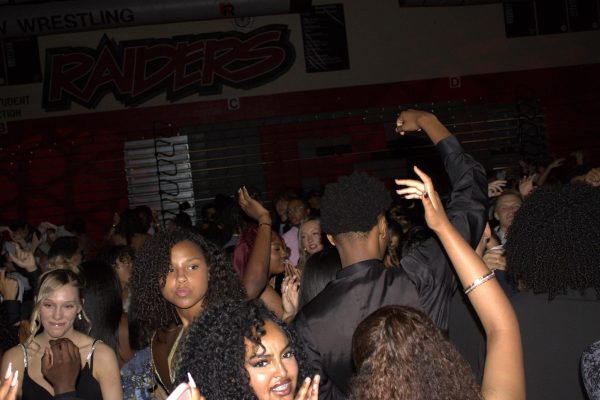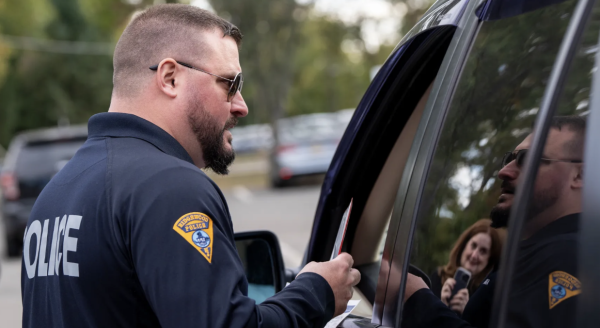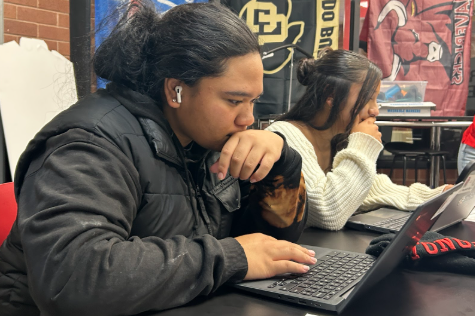If I were a boy…
Kimberly Thompson poses with friend Jill Linter at the women’s march in Washington D.C. Women are coming together across the nation to speak out and speak up for each other.
November 13, 2019
If I were a boy, I wouldn’t be writing this right now.
Women are still an oppressed demographic and as twitter would say, “we aren’t ready for that conversation.”
I am ready for that conversation.
Sexism is defined as: “prejudice, stereotyping, or discrimination, typically against women, on the basis of sex.” Sexism is everywhere. It affects me, your mom, your sister, your girlfriend, and every other girl in the world.
From a young age, whether it is one’s intention or not, gender based stereotypes are instilled into children everywhere. The moment that the doctor announces the gender of a baby, is the same moment that we begin to associate the color blue with boys and pink with girls. It is something so small as a color that leads to something much bigger, something that manifests into the practice of sexism.
“There’s a reason I fear for the lives of my mother and sister every morning they leave the house. Sexism; the frightening reality of today’s America. Look no further than the vast disparity of men to women in our government,” stated Junior, Zak Nafoui.
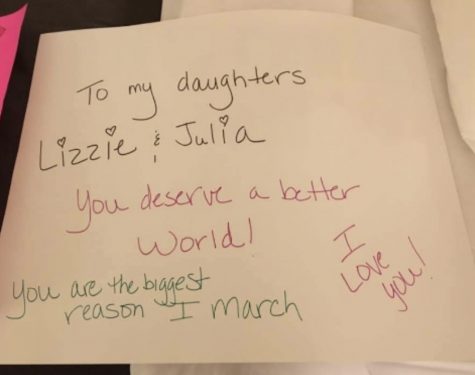
Women are lacking representation in government, STEM based careers, and many other vital areas of society. In Congress, there is less than 25% female representation. The United States has a very low rank for overall women representation.
Laura Bates, an English feminist writer, spoke on sexism in a TedTalk saying, “If women are equal now, then to talk about sexism, to complain about sexism, must be overreacting. Or maybe you don’t have a sense of humor, or maybe you need to learn to take a compliment, or maybe you’re a bit frigid or uptight and you need to learn to take a joke.”
Bates went on to talk about the fact that women are still not equal and every individual’s story does matter. After Bates had had a rough week and experienced multiple occasions of harassment, solely based off of her body or the fact that she was a woman, she decided to put a website together where women and men could share their own experiences. Within eighteen months, over fifty-thousand women had shared their stories and their day to day sexist experiences.
If there were 50,000 women in the world that stumbled upon the page and added their stories, then it becomes evident that it is a problem and it’s beyond women being too sensitive.
Junior, Julia Stacks, said, “Today, sexism is taken too lightly or as a joke. I’ll hear people make jokes and say ‘go back to the kitchen’ and even though it is a joke, it’s still reinforcing those ideas once again.”
Everyday Sexism Project Posts:
- I told them to stop but then they said that no one would believe me if I told on them because I’m too ugly to be raped. I have tried extremely hard to lose weight as I am the fattest and ugliest out of all of my friends. I am sorry if I offend anyone-I’m 13 by the way.
- Why do the male administrators at my university wave me off during meetings, but praise the male student members when they repeat (almost verbatim) the ideas I’ve already suggested?
- I went to the doctor to be treated for a rash on my stomach. The doctor asked me to lift my shirt to show him the rash, which I did. He then roughly pushed me around and smacked my bum. I felt that it wasn’t severe enough to report. It’s been almost a year now and I feel that it’s too late, anyway.
There are so many more women out there with similar stories.
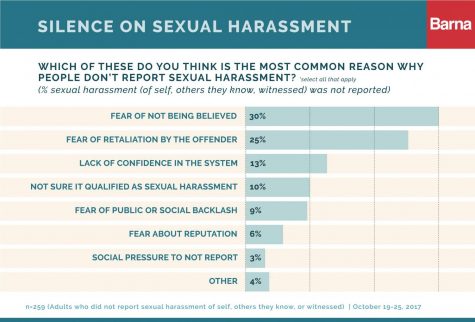
The sexualization of women’s bodies is so common that it doesn’t even truly throw me off guard when I hear people doing it anymore. We as a society have let the normalization of sexist behaviors go too far. We aren’t even talking about it in schools.
No one is born sexist, it is something that is taught. Being sexist is a choice. Allowing others and ignoring acts of sexism makes you just as bad as the one acting in such a way.
Junior, Sarah Bendahmane said, “…we need to empower women and teach men to support them.”
It’s not too late to start the conversation. It’s not too late to talk about the harsh realities that both men and women are facing. If we talk, we begin to normalize the awareness and acceptance of emotions that is required to spark change.






